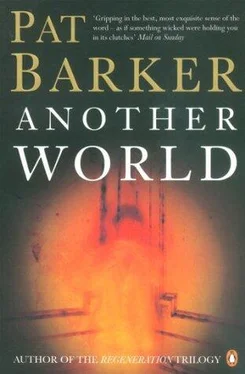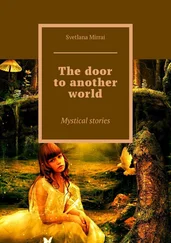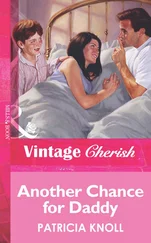The car-park’s filled up since they arrived that morning. Rows and rows of cars, their windscreens and bumpers flashing in the sun, so many Nick feels disorientated, standing in the sparse blue shade of a pine tree, trying to remember where he’s parked.
At last he sees the Volvo, in full sun now, though he’d left it in shade. Be like a microwave. Walking towards it, his shadow ravelling round his feet, he wonders whether he should tell Fran about the Fanshawe murder. Not to tell her seems patronizing, it goes against the whole grain of their relationship, but then he remembers the flood of tears that morning. She’s exhausted, has been ever since the move, it would take very little more to push her over the edge. And he doesn’t know how she’d react. This isn’t just a sad old story; it happened in the rooms where they live and sleep and eat. The fact is nobody would knowingly buy a house in which a murder has been committed. You can tell yourself it doesn’t matter, it’s the past, it’s over, but the fact is you wouldn’t choose to do it. And Fran’s pregnant. Now more than ever she needs to feel safe. It’s not as if any useful purpose would be served by telling her… Later perhaps, when they’ve succeeded in stamping their own identity on the house. At the moment it still feels like a house-swap, with the actual owners expected back at any moment.
He opens the car boot, throws in the book, and, after a moment’s thought, pulls a plastic bin bag over it. Right, that’s settled, then.
People crowd round the circus tent, waiting for the next performance. No sign of Fran or the children. He walks towards the house and there, directly ahead of him, is Fran, strolling along towards the restaurant. He runs to catch up with her, and slips his arm around her waist. ‘Where are the children?’
‘Where’ve you been?’
‘I went for a drink. Where are they?’
‘I gave them some money for ice-creams. Did you get a guide?’
‘No, they hadn’t got any.’
Nick’s looking at the ice-cream van. There’s a short queue, but the children aren’t in it.
‘Are we going to eat here?’ Fran asks.
‘No, let’s go to the coast, shall we? There might be a bit more of a breeze.’
The children aren’t anywhere near the ice-cream van. ‘I’ll just see where they are,’ he says casually, but then breaks into a run. Fran calls something after him, but he can’t hear. He’s panicking, telling himself not to be so bloody stupid, but there are so many streams and lakes round here, it’s no place for a toddler to be on his own. But he’s not on his own, he’s with Gareth and Miranda. Nick’s mind skitters away from the real source of his fears. He asks the man in the ice-cream van whether he’s seen three children, a fair-haired toddler with an older boy and girl. A woman standing near by, swirling her tongue round an ice-cream cone, points to a path that leads down to the largest lake.
Nick careers down the hill, jumping on to the verge to avoid an elderly couple. The path’s uneven, shelving down steeply between the roots of trees. A hundred feet below there’s a stream, its water blackish brown, flowing over black rocks. Sometimes it flashes white over miniature waterfalls, or opens into deep pools with pebble promontories. Every hundred yards or so wooden bridges span the stream. There’s a path on the other side too, narrower than this, bordered by glistening ferns that are almost as wet as the rocks. Nick crosses over and thinks he sees them, two taller figures holding a small boy by the hand. He opens his mouth to call their names, then realizes it’s a couple with their child. His children are nowhere to be seen.
The fir trees tower over him. Even the roots are above his head. Only by craning his head back can he see glints of sunlight on the uppermost branches. A warm, dark, wet, enclosed place. It reminds him of the garden at Lob’s Hill. All the trees and bushes are evergreens, their dead leaves forming a weed-killing mulch that kills everything else as well.
And then he sees them. Comes round a corner of the twisting path, and sees them, Jasper with his trainers and socks off, paddling; Miranda sitting on a rock sucking out the last drop of ice-cream from the bottom of the cone; Gareth standing on a rock in the middle of the stream, the turbulent water chafing round him.
Nick calls out, and all three children turn towards him, their faces pale in the gloom of the rhododendron bushes. They say nothing and he wonders what they see, what they make of him, this sweaty anxious adult who stands on the bridge above them, looking down.
After supper that evening, Fran and the kids settle down to watch Terminator 2:Judgement Day . It’s Gareth’s favourite, he must’ve seen it twenty times, but he never gets tired of it. Nick watches the opening scenes, and then, as pieces of dead children begin to blow across the screen, like leaves, in the nuclear wind, he retreats to the living room and starts covering up the wall painting.
White paint. No time to worry about colour schemes, he just wants the portrait covered. With a roller he draws huge swathes of emulsion across the wall; the figures disappear into a blizzard. Apple white, it says on the tin. Alzheimer white.
Nick’s shadow mimics his actions as he works. He’s the second person to do this. Fanshawe would never have entrusted the cover-up to anybody else, his pride wouldn’t have let him. Now, for the second time, the faces sink into the wall. He tries not to look at them, not to meet their gaze. According to Notable Northern Murders , Muriel always maintained that she knew nothing about how James had died, but who, looking at this picture, would have believed her? And, judging from the age of the children, this must have been painted within weeks, or months, of his death.
He leaves James till last, then kneels down and applies the paint, with a small brush, in little dabs and darts. It’s like washing Jasper’s face, he half expects James to pull away. Now the eyes. He paints over them quickly, and then, still kneeling, feeling a complete fool, says, ‘Night night.’
The rest of the wall can wait. He’s just finished cleaning the roller and brush when the phone rings. ‘I’ll get it,’ he shouts, not wanting the video watchers to be disturbed.
It’s Auntie Frieda, shrieking into the phone — she’s never really got the hang of them — saying she’s been trying to get him all day.
‘How is he?’ Nick asks, expecting the worst.
‘Home.’
‘ Home? He can’t be.’
‘He is.’ She sounds elated and frightened. ‘You know the consultant said he could come home next week, but I never thought they’d send him out on a Sunday. Need the beds, I suppose.’
‘How did you get him back?’
‘Oh, the ambulance took us.’
‘How is he?’
‘Tired. Look, he wants a word. Hang on a sec.’
A long pause. Sounds of shuffling steps and laboured breathing coming closer. I should have taken them home by car, Nick thinks, torn again. If this drags on into October and the start of term there’ll be no way he can cope.
A bump and a click as the phone’s picked up.
‘How do you feel?’ Nick asks, speaking loudly, not because there’s any doubt about Grandad’s ability to hear, but because the telly’s going full blast. He sticks a finger in one ear, and crouches over the phone.
‘Fine. A lot better.’
‘Does it hurt much?’
‘Nips a bit. It’ll settle down.’
‘Have they given you anything for the pain?’
‘I think the pink pills are for that.’
‘Do they work?’
‘Nah. I don’t know where I am with them.’
Perhaps the dose is too high? Nobody knows what the right dose is for a man of 101. Geordie’s walked off the end of the graph.
Читать дальше












